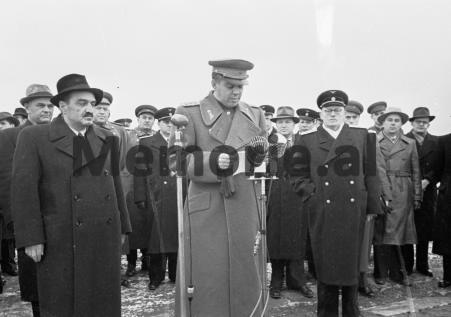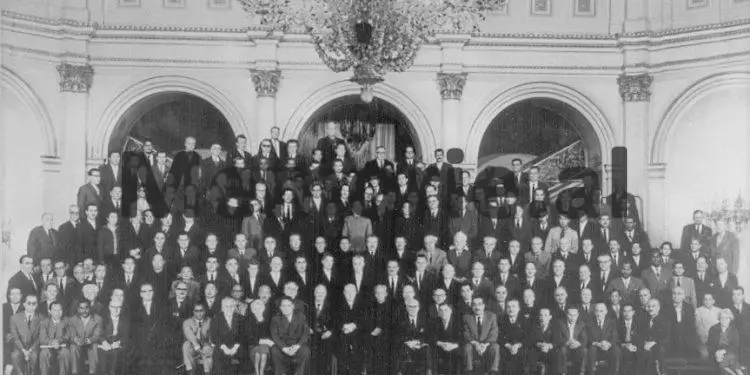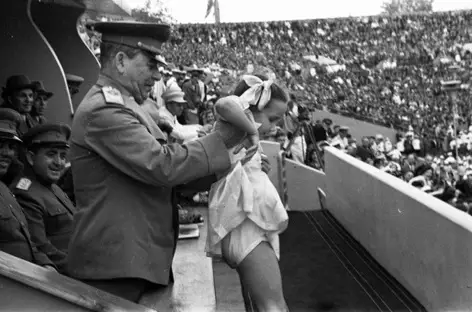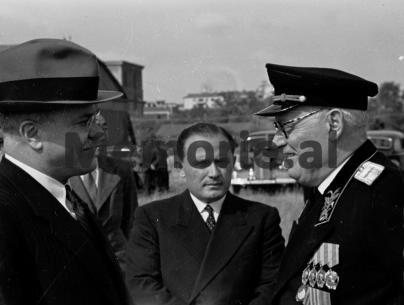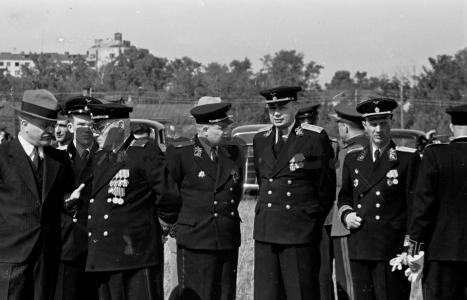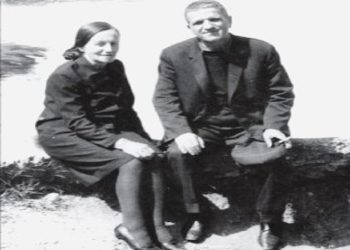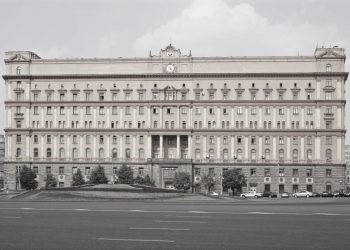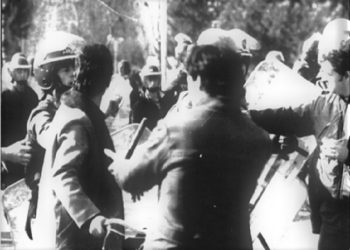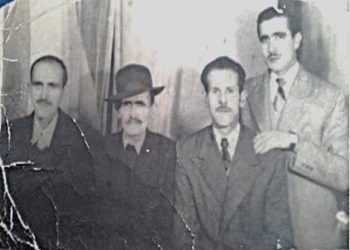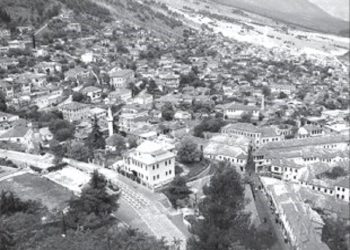By Ferdinand Dervish
The first part
-Russian archives, the plan for the invasion of Albania by the Soviets, in August 1962, is revealed-
Memorie.al / How many things remain unknown! How many things time successfully buries for decades! In June 1961, the Soviets withdrew submarines and ships from the military base of Vlora, but they could no longer gather their wits. They see themselves lost, feel irritated, unappreciated and finally put down the plan of conquering Albania. A military plan of invasion, with attack by sea and land. An invasion that had to be carried out before September 1, 1962. A plan that was rejected not only by Romania, but also by Josip Broz Tito, in the moments of the coronation. But fortunately, even a plan remained on paper, due to the missile crisis in Cuba, a commitment that seems to have nullified the plan for the invasion of the disobedient Albanian state. These “jewels” are kept in the secret archives of the army of the former Soviet Union.
Perhaps completely unknown by the Albanians, but not by their leaders of the time, Enver Hoxha and his friends, who quickly embraced the Chinese, asking them, first of all, for military assistance and help, but also by starting to dig the first trenches and further and underground shelters. So, perhaps for the first time, Enver Hoxha’s paranoia, his fear of being attacked militarily, initially by the Soviets, at least in this case has a justification…! The materials for this article were taken from a paper by the Doctor of History, Aleksandër Okorokov, entitled “Zig-zags of Albanian politics”, published on February 16, 2009.
Enver Hoxha chooses the Soviets
“…In July 1947, the first meeting between the General Secretary of the Central Committee of the Communist Party of Albania, Enver Hoxha, and the Soviet leader, Joseph Stalin, took place in Moscow. The guest is surprised by everything; from the simplicity of the cabinet, from the gentleness of the lord’s behavior, from his sharp judgments. Apparently, the Albanian leader also made a good impression on Stalin. The talks with Stalin and Molotov materialized in an agreement to provide substantial aid and credit to Albania, in industrial equipment and specialist training. Albania was given a preferential loan, about 6 million US dollars – a huge amount for those times. During this meeting, it was decided to provide weapons, but without payment.
On August 11, 1947, without any known connection to the moment, Enver Hoxha was honored by the Soviet government, with the “Suvorov” Order of the First Class. The visit of the Albanian government delegation causes tension in Belgrade. The fear of losing a strategically important military position galvanized the Yugoslavs. Under their pressure, there were purges in the ranks of the Albanian state and party apparatus. A number of prominent politicians who supported rapprochement with the Soviet Union were subjected to repressions, while some, accused of ‘chauvinist anti-Yugoslav activities’, and were executed. In December 1947, Albania was visited by the Chief of Staff of the Yugoslav Army, K. Popovic, accompanied by two political leaders and the Armed Forces.
The purpose of his visit was to strengthen ties in the military field, and in particular to implement the introduction of a Yugoslav division in the Korça region, as a complement to an air regiment, supposedly for the common defense of the southern borders of Albania, from an attack in preparation, of the Greek monarcho-fascists and the Anglo-American imperialists. These movements caused an active protest of Western countries, as well as a negative reaction in the Soviet Union. And if the former feared the expansion of the socialist sphere of influence, the displeasure of the Soviet leader was, in no small measure, caused by the fact that Belgrade had made this decision without a prior agreement with Moscow.
In mid-April 1948, a copy of the letter of the Central Committee of the Communist Party of the Soviet Union (Bolshevik) dated March 27 was sent to Albania, accusing the Communist Party of Yugoslavia and its leaders of anti-Soviet line, opportunistic mistakes and revision of the basic principles of Marxism-Leninism. In front of Albania, a difficult question arose: Who should they side with? The decision was made in favor of the Soviet Union. On July 1, 1948, the Albanian Government announced the cancellation of the agreements with Yugoslavia and the departure from the country of Yugoslav advisers, whose number at that time consisted of about 600 people.
The new political course, which the country chose, started with the purges from the ranks of the party and the change of its name, from Communist to Labor Party, according to a personal advice of Stalin. In the framework of agreements for aid to Albania, industrial and food goods began to be sent, as well as loans were issued. The largest package of commercial and economic agreements between the Soviet Union and Albania was signed in April 1957. The Soviet government released Albania from the payment of loans, the amount of which up to this time had reached 422 million rubles. The Soviet Union helped Albania establish the pillars of the economy, built 93% of all infrastructures for the oil and mining industry, about 90% of road transport, and brought more than 80% of tractors and 65% of other agricultural machinery. Considerable help was also given in the military field. A special attention was paid to the reinforcement of the Adriatic coast.
The fact was that in this period, the entire Mediterranean region entered the area of rivalry between NATO and the Warsaw Pact. The situation in the area was complicated, with the entry in 1952 of Turkey and Greece in NATO. Under these conditions, Turkey’s ability to control the Bosphorus and Dardanelles straits, the only sea route to the south that connected the Soviet Union to other seas and the world ocean, as well as the constant presence in the Mediterranean of the US 6th Fleet , constituted an imminent threat to the security of the Soviet Union. The first steps to change the situation were taken at the beginning of the 1950s. At the end of May 1954, a squad of Soviet warships headed by the cruiser “Admiral Nahimov” went to Albania…!
On one of the days of his stay in Albania, in the port of Durrës, the head of the Fleet, Admiral Gorshkov, and the Minister of Defense of Albania, Colonel-General Beqir Balluku, arrived in one of our ships. The ship raised anchor and soon went to the bay of Vlora, where the senior leaders observed a natural harbor positioned in the most exceptional way…! At the end of the 1950s, the plan to establish a permanent deployment site for Soviet ships in Albania began to be realized. In accordance with the decisions of the Council of Ministers of the Soviet Union, from July 26, 1957, to April 22, 1959, the construction of a Naval Military Base and a military airfield began in the bay of Vlora…!
The big break
…The peak of Albanian-Soviet relations were marked by Khrushchev’s visit to Albania in May 1959. This was the first visit to this country by an official of such a high rank of the Soviet state. However, the period of euphoria passed quickly. The Albanians began to get closer to the Chinese, feeling that with the change of partner, they would have more benefit. The Soviet “punishment” was not long in coming. Goods began to arrive late and incomplete, and requests for supplies of Soviet tractors, etc., were refused!
…After the Moscow meeting, the Soviet leadership moved political disputes into the sphere of interstate relations and moved on to resolving economic ties. This was followed by the cancellation by the Soviet side of the loans that had been agreed upon, granted for the third five-year plan (1961-1965)…! Specialists who worked in state-owned enterprises were withdrawn from Albania, while Albanian students, including those who received lessons in military tactics, were deprived of the right to continue their studies in the Soviet Union…! From February 1961, Moscow also banned the broadcasting of Radio-Tirana waves, in the Russian language.
In March 1961, the Presidium of the Central Committee of the Communist Party of the Soviet Union decided to liquidate the Vlora base, approved at the next meeting of the Consultative Political Committee of the countries participating in the Warsaw Pact. The Minister of Defense of Albania, Beqir Balluku, who participated in this meeting, protested this decision, stating that; they were leaving Albania alone in front of the 6th American Fleet. But this objection did not find support. According to the Soviet-Albanian agreement, 4 submarines, the floating base “Nemčinov” and coastal infrastructure were left in Vlorë. According to data from the emigrant press (Albanian diaspora, ed.), the submarines, which were given to the Albanians in the early 1970s, continued to carry out combat duties in the Adriatic Sea…!
The plan of the invasion of Albania…!
In the middle of 1961, a plan was worked out in Moscow to resolve the “Albanian problem” by force. He predicted the overthrow of Enver Hoxha, with the help of the Albanian communists “faithful to socialist ideals” and their leadership, towards the Soviet Union and the countries participating in the Warsaw Pact, with the request for “military aid”. After that, the soldiers of the Soviet Union and other socialist countries, except Romania, which refused to participate for “help”, should enter Albania from the north and east, – through Yugoslavia, and from the south, – through the Ionian Sea. The “liberation” of Albania was planned to be realized no later than September 1, 1962.
But the aggravation of Soviet-American relations, due to Cuba (Caribbean Crisis), did not allow the realization of the plan in the stipulated time. Taking advantage of this postponement, the Albanian leadership took preventive measures. In the spring of 1962, during the next visit of Enver Hoxha and the Prime Minister of the country, Mehmet Shehu, in the meeting with the Chinese leaders, Mao Zedong and Chu En Lai, an agreement was reached for comprehensive assistance to Albania, from the Chinese side. After that, Chinese military advisors, weapons, ammunition started to go to the country. In a short time, underground shelters began to be built, which in 1968 covered almost the entire territory of the country. At the same time, the ranks of the party were also purged, primarily the state apparatus.
As a result, in the years 1960-1962, up to 70 percent of the composition of the Central Committee, leadership, and many ministries and departments were renewed. These “curative” measures were carried out by the Secretary of the Central Committee of the Labor Party, Ramiz Alia, who later became Enver Hoxha’s successor. In the summer of 1962, Moscow returned to the “Albanian issue”. The main role of the plan for “de-Stalinization” of the country was given to the Yugoslav leader, Josif Broz Tito. In Moscow, they calculated that the Albanian-Chinese alliance, the anti-Yugoslav policy and propaganda of Tirana, and also Enver Hoxha’s growing appeal against the “discrimination of Kosovo Albanians”, would force Belgrade to cooperate with the Soviet Union.
In July 1962, Nikita Khrushchev asked Tito for permission for the passage of the Warsaw Pact army through Yugoslavia to the Albanian borders. But, ignoring the conflicts with Enver Hoxha, Titua refused to help Khrushchev. Moreover, he confidentially informed the Albanian leaders about Moscow’s plans, but also the Indian Prime Minister, Nehru, the President of Egypt, Nasser, and the President of Indonesia, Sukarno (Tito was involved in a political alliance with these states, ed.) Khrushchev’s intentions, to give a good “lesson” to Tirana.
Fearing the public release of these plans, Moscow decided to withdraw, while the conflict with the Americans over Cuba, now at its height, finally changed the geopolitical priorities of the Soviets. However, the loss of Albania had serious consequences not only for the Soviet Union. The strategic-military position of the entire socialist camp vis-à-vis the NATO bloc was significantly weakened. According to the German publicist, Harry Hamm, “from this time it became impossible for the communist countries of the Balkans to implement an unchanged policy in relations with Turkey and Greece without the powerful help of the Soviet Union”. As far as Albania is concerned, until 1978, it followed the advice of its “new friend”, Great China, and used its loans.
Further, for several years in a row, he found himself in almost complete political isolation. At the time of the Yugoslav crisis, the Albanian President, Sali Berisha (elected on April 4, 1992), supported the US in efforts to fill the vacuum created in Eastern Europe, after the exit of the Soviet Union. Trying to take advantage of Albania’s location as one of the most important strategic points of the Eastern Mediterranean, the country was offered military aid. For these purposes, in the budget of the Pentagon, loans in the amount of 2 million USD were provided for the purchase of weapons and uniforms for the Albanian army. The government and Berisha, for their part, made the airfields available to American reconnaissance aircraft. This helped NATO to carry out active observations of the territory of Bosnia in 1995″. /Memorie.al
The next issue follows




